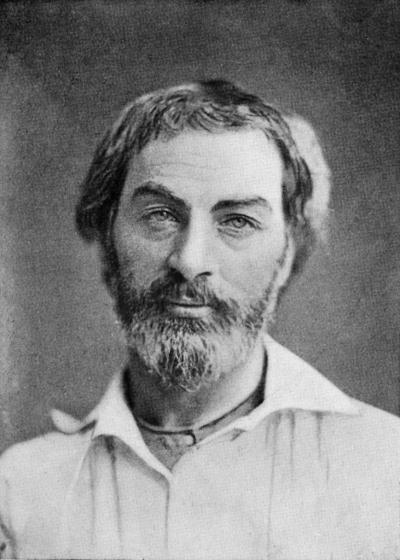Lomonosov Moscow State University
Faculty of Philology
Faculty of Arts
State Institute for Art Studies
Gerasimov Institute of Cinematography (VGIK)
CONFERENCE
Dedicated to the 100th Anniversary of Tonino Guerra

TONINO GUERRA: DIALOGUES OF ARTS AND DIALOGUES OF CULTURES
Faculty of Philology, Lomonosov
Moscow State University, Moscow, Russia
16-17 March 2020
Tonino Guerra—poet, artist, and screenwriter, whose collaboration with film directors M. Antonioni, F. Fellini, Th. Angelopoulos, F. Rosi, A. Tarkovsky, and others—achieved worldwide critical acclaim. Guerra wrote poetry and prose both in Italian and in Romagnol, he painted, was a talented ceramist, and designed fountains and museums. Guerra’s multi-layered creative work, his interest in the dialogue of the arts requires a complex multidisciplinary approach.
Guerra had close ties to Russian culture, and this aspect of his life and work offers abundant material for discussions of intercultural dialogue and of the enrichment brought about through intercultural contacts. Prospective participants are encouraged to submit paper proposals especially on the following topics:
– The distinctive features of the cinematic plots Guerra created in collaboration with renowned film directors
– Guerra’s poetry and prose: problems of poetics and translation
– Guerra as artist: pictorial arts, crafts, design
– Guerra the man and the myth: the scriptwriter’s biography as fabula
– Intercultural dialogue in Guerra’s creative work: collaborations and influences
Members of the conference organizing committee: T. Venediktova (MSU), O. Frolova (MSU), S. Slavkova (University of Bologna), D. Nemec Ignashev (Carleton College, MSU), A. Lobodanov (MSU), P. Rybina (MSU), E. Kalinina (MSU), T. Gnedkovskaia (SIA), D. Viren (SIA), S. Kapterev (VGIK).
The conference’s working languages are Russian, English, Italian.
Proposals should be sent to Polina Rybina (rybina_polina@hotmail.com) and Ekaterina Kalinina (kalininakatia@gmail.com) by 16 October 2019. Please include your name and institutional affiliation, an abstract of no more than 250 words, and a short bio of no more than 100 words.
==
Università Statale Lomonosov di Mosca (MGU)
Facoltà di Filologia
Facoltà delle Arti
Istituto Statale per la Storia dell’Arte (GII)
Istituto Statale di Cinematografia S. A. Gerasimov (VGIK)
Conferenza Internazionale
per la celebrazione del Centenario della nascita di Tonino Guerra

Tonino Guerra: dialogo tra le arti, dialogo tra le culture
Facoltà di Filologia,
Università Statale Lomonosov di Mosca, Mosca, Russia
16-17 marzo 2020
Tonino Guerra, poeta, pittore, sceneggiatore: i film da lui sceneggiati, per la regia di M. Antonioni, F. Fellini, Th. Angelopoulos, F. Rosi, A. Tarkovsky e altri, sono riconosciuti come tesori del cinema mondiale. Guerra scrisse poesie e prosa sia in italiano che in romagnolo, era pittore e apprezzato ceramista ma progettò anche fontane e complessi museali. La poliedrica creatività di Guerra e il suo interesse per il dialogo tra le varie espressioni artistiche richiedono un complesso approccio interdisciplinare.
Tonino Guerra ebbe un legame forte con la Russia e la cultura russa. Questo aspetto della sua vita e della sua attività invita a una riflessione sulla ricchezza del dialogo tra le culture, sull’importanza imprescindibile dei contatti interculturali.
Gli interessati sono invitati a presentare proposte di comunicazione riguardanti, in particolare, i seguenti temi:
– Caratteristiche distintive delle sceneggiature create da Tonino Guerra in collaborazione con i più grandi registi del Novecento
– La poesia e la prosa di Tonino Guerra: problemi di poetica e traduzione
– Guerra come artista: pittura, artigianato, design
– Guerra come uomo e come mito: la biografia del famoso sceneggiatore come fabula
– Il dialogo interculturale nell’opera creativa di Guerra: collaborazioni e influenze
Comitato Organizzatore della Conferenza: T. Venediktova (MGU), O. Frolova (MGU), S. Slavkova (Univerità di Bologna), D. Nemec Ignashev (Carleton College, MGU), A. Lobodanov (MGU), P. Rybina (MGU), E. Kalinina (MGU), T. Gnedkovskaia (GII), D. Viren (GII), S. Kapterev (VGIK).
Lingue di lavoro: russo, inglese, italiano
Le proposte dovranno essere inviate a Polina Rybina (rybina_polina@hotmail.com) e Ekaterina Kalinina (kalininakatia@gmail.com) entro il 16 ottobre 2019. Si prega di indicare il proprio nome e affiliazione istituzionale, allegando una breve biografia (100 parole) e un abstract (250 parole).

